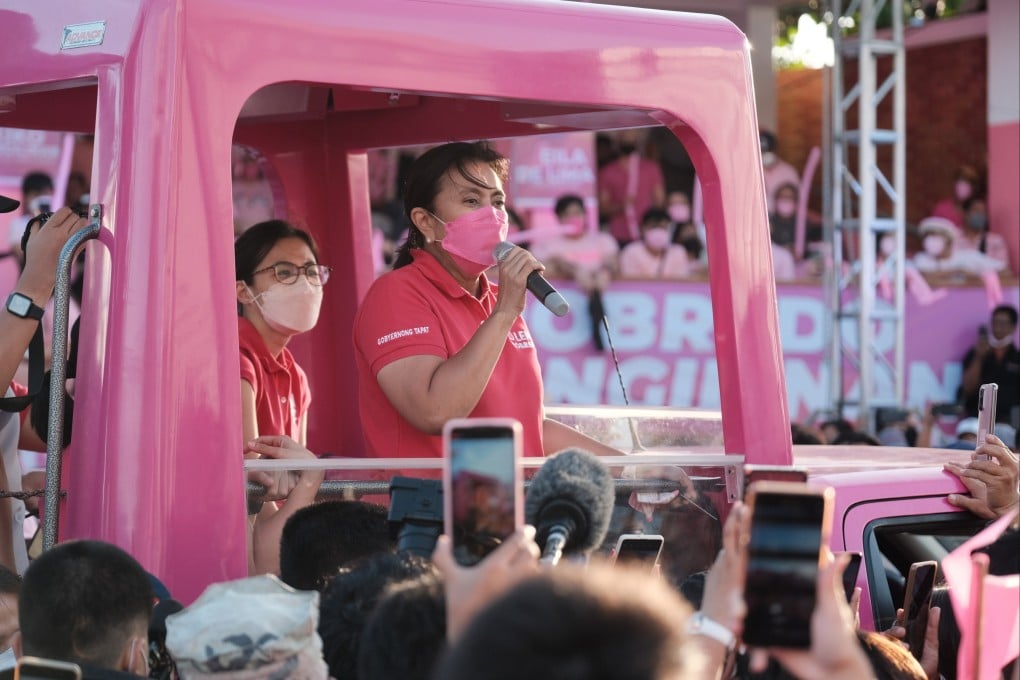Explainer | Philippine presidential election campaign begins: who’s running, who’s hottest, and what’s their South China Sea approach?
- Three-month campaign period is now under way, with a 13-page list of prohibitions aiming to ensure peaceful, fair election takes place on May 9
- Ferdinand Marcos Jnr, a front runner, favours bilateral approach to South China Sea while current VP Leni Robredo prefers multilateral approach

There will be no more cash giveaways, guns firing money, real guns and armoured vans now that the official campaign period for the Philippine presidential elections has started.
The three-month period will be marked by a 13-page list of prohibitions aimed at ensuring a smooth and peaceful election on May 9.
Some of what is banned is easily understandable: candidates are not allowed to buy votes, public officials cannot release funds, and those who want to carry firearms need special permits from the election commission (Comelec).
Other bans are more puzzling, such as placing a bet on the election outcome (allowed in some other countries) and riding in an armoured “land, water or air craft”.
What ‘tricks’ have raised eyebrows so far?
In a Philippine election, the months before the official campaign begins are marked by candidate behaviour that raises many an eyebrow, at home and abroad. In October, presidential candidate Manny Pacquiao openly handed out wads of cash and groceries to residents affected by a 2020 volcanic eruption.
He said he was not vote buying, but giving assistance. Later, though, he admitted he was taking advantage of the fact that the campaign period had not yet started.
A candidate for vice-governor, Luis “Chavit” Singson, went one better than Pacquiao: he shot 1,000 and 500 peso bills from a gun-like cash dispenser at a crowd that frantically scrambled to scoop up the money. He told the media he did it to make people “happy”.

On February 2 vice presidential candidate Sara Duterte, daughter of president Rodrigo Duterte, toured the southern island of Mindanao while peering out of the roof hatch of a custom built commanding black van fitted with powerful speakers.